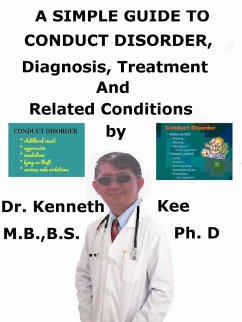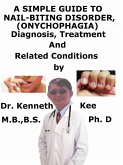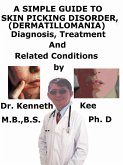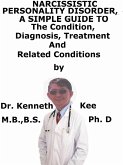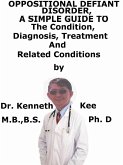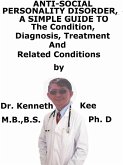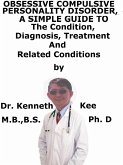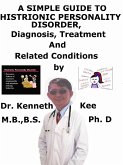Conduct disorder is a serious behavioral and emotional disorder that can happen in children and teens.
A child with this disorder may exhibit a pattern of disruptive and violent behavior and have difficulties following regulations.
It is not infrequent for children and teens to have behavior-related troubles at some time (at least 12 months) during their development of their lives.
The behavior is regarded as a conduct disorder when it is long-lasting (at least 12 months) and when it infringes the rights of others, goes against acknowledged norms of behavior and disrupts the child's or the family's everyday life.
The precise cause of conduct disorder is not clear, but it is thought that a combination of biological, genetic, environmental, psychological, and social factors have a part to play.
Biological:
Conduct disorder has been linked to certain brain areas involved in controlling behavior, impulse control, and emotion.
Genetics:
Many children and teens with conduct disorder have close family members with mental illnesses, such as mood disorders, anxiety disorders, substance use disorders and personality disorders.
Environmental:
Factors such as a dysfunctional family life, childhood abuse, traumatic experiences, a family history of substance abuse, and contradictory discipline by parents may add to the development of conduct disorder.
Psychological:
Some doctors believe that conduct disorders can indicate problems with moral consciousness (notably, lack of guilt and remorse) and deficits in cognitive processing.
Social:
Low socioeconomic status and not being acknowledged by their peers seem to be risk factors for the formation of conduct disorder.
Generally, symptoms of conduct disorder are divided into 4 general categories
Aggressive behavior
Destructive behavior
Deceitful behavior
Violation of rules
Treatment normally comprises a combination of these therapies:
Psychotherapy
Cognitive behavioral therapy focuses to reshape the child's thinking (cognition) to improve problem solving skills, anger management, moral reasoning skills, and impulse control.
Family therapy can help family members communicate more effectively and help parents learn methods for de-escalating conflict with their child
Group therapy with the child or teen's peers is sometimes used to help them develop interpersonal skills and behaviors that foster empathy
School support is a very important component of treatment to help the child with conduct disorder
Parent management training (PMT) teaches parents ways to positively change their child's behavior at home
Medicine:
While there is no medicine formally approved to treat conduct disorder, various drugs may be used to treat:
1. Some of its distressing symptoms (impulsivity, aggression, deregulated mood), and
2. Any other mental illnesses that may be present, such as ADHD or major depression
Conduct disorder can occasionally cause depression, bipolar disorder or other mental health difficulties later in life, so early assessment and treatment is important for children.
Treatment may be difficult since children are often not cooperative and distrustful of adults.
Treatment for conduct disorder normally requires both personal and family therapy, and the primary goal of treatment is to help the person improve interactions with others.
TABLE OF CONTENT
Introduction
Chapter 1 Conduct Disorder
Chapter 2 Causes
Chapter 3 Symptoms
Chapter 4 Diagnosis
Chapter 5 Treatment
Chapter 6 Prognosis
Chapter 7 Antisocial Personality Disorder
Chapter 8 Oppositional Defiant Disorder
Epilogue
Dieser Download kann aus rechtlichen Gründen nur mit Rechnungsadresse in A, B, CY, CZ, D, DK, EW, E, FIN, F, GR, H, IRL, I, LT, L, LR, M, NL, PL, P, R, S, SLO, SK ausgeliefert werden.

